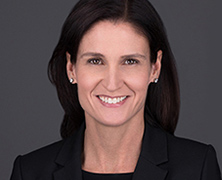What can be done to increase diversity in STEM fields?
Recognize the tendency of dominant paradigms to prevail despite evidence to the contrary (see The Structure of Scientific Revolutions by Thomas Kuhn) Welcome different perspectives and new hypotheses and encourage rigorous debate. Promote academic freedom and freedom of speech for scientists, teachers and students. Commit to follow the evidence wherever it leads.
What barriers do you see to closing the gender gap in STEM?
STEM is an exciting field with tremendous potential for students who choose to pursue it. Exposing students to STEM early, giving them hands-on opportunities to see how it relates to their world, and encouraging them to see themselves as creative problem-solvers are keys to developing the next generation of STEM practitioners.
What can be done to move women forward in STEM?
At all stages of their careers, women should be provided opportunities to explore different areas of STEM. Whether it’s through corporate educational opportunities, affinity groups or after-school programs, we need to create more spaces for women to understand their aptitudes, strengths and interests, as well as the opportunities available across the different STEM fields.
Where do you see women in STEM in five years?
I think we’ll see more women in STEM stepping into leadership roles and continuing to make significant contributions in a wide variety of disciplines. Recently, companies of all sizes have enhanced their commitment to diversity, equity and inclusion initiatives. I think we’ll continue to see more education about and emphasis on the impact of women’s contributions in the engineering and technology fields throughout history, and start to see even more seats open up for us at the table.
Describe your experiences as a woman in a STEM career. What else would you like our readers to know about being a woman in a STEM career in 2023?
Working in STEM has been rewarding, stimulating, satisfying and challenging. I truly enjoy my work and have built a strong network of colleagues and mentors that I can trust and rely on. Throughout my career working in male-dominated industries – IT organizations and the U.S. military – I’m fortunate to have positive experiences and have never felt less than because of my gender, only valued for the quality of my work.







